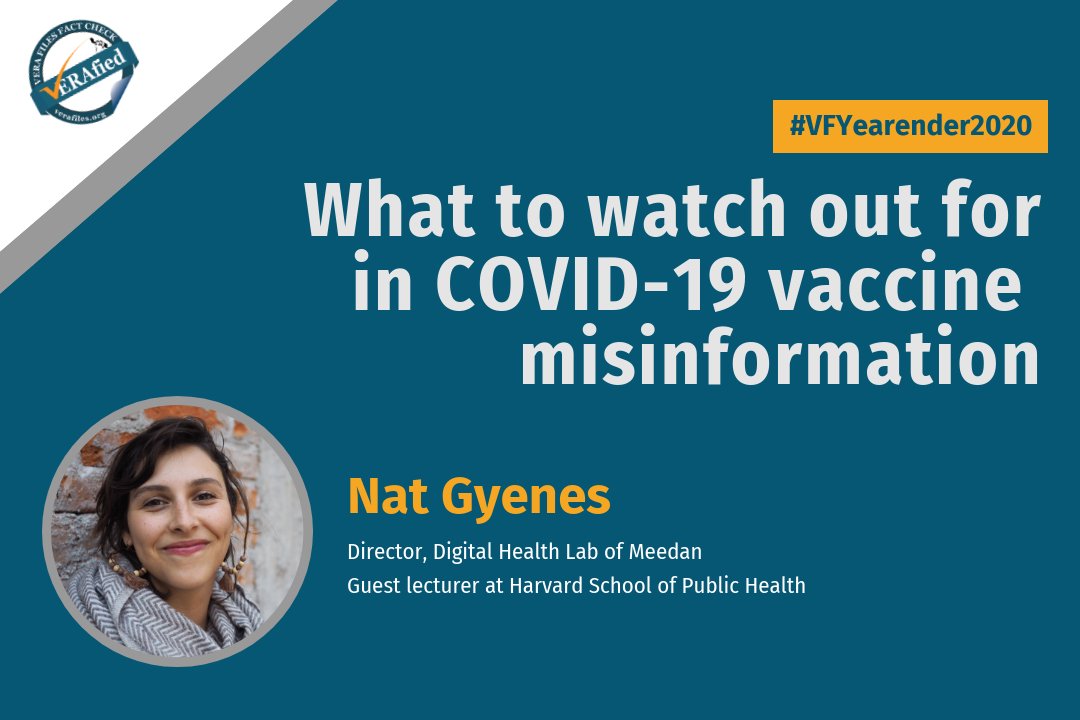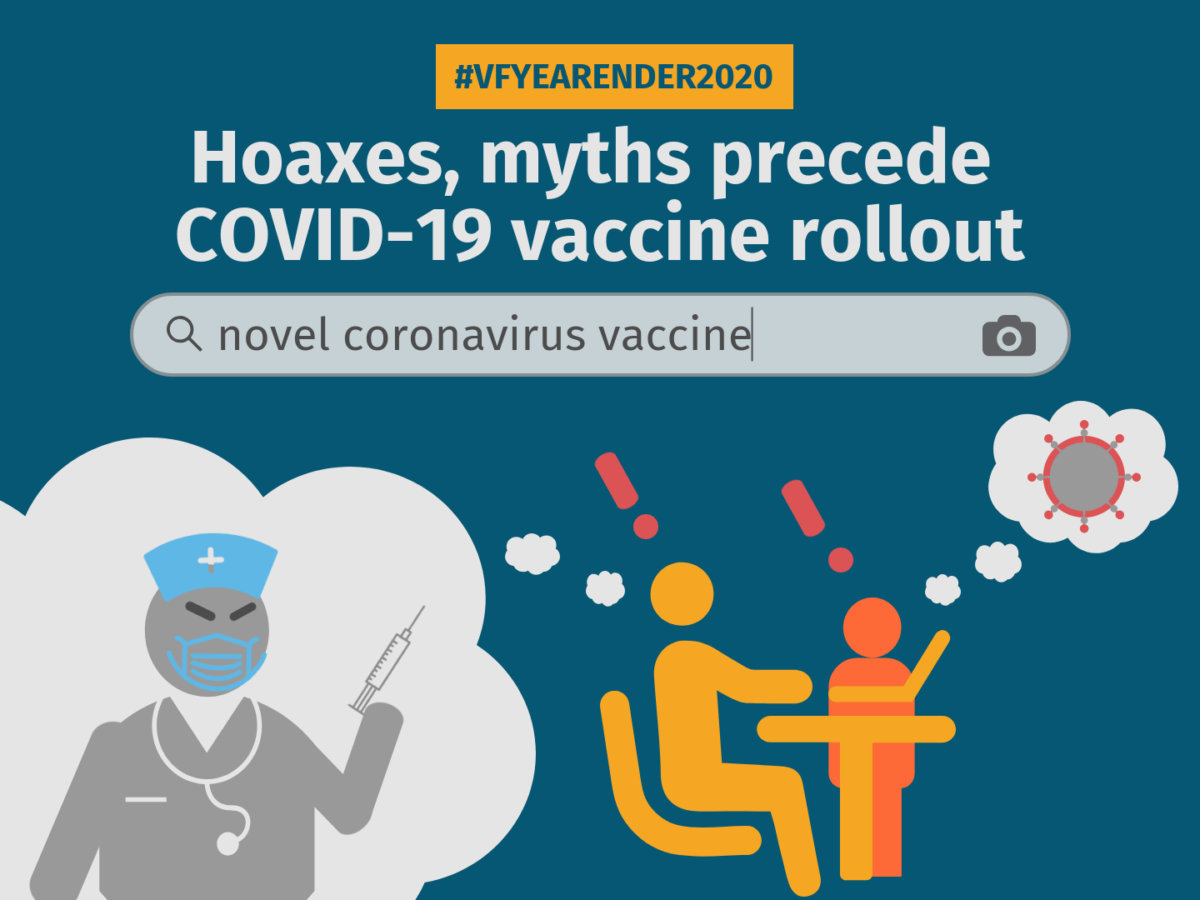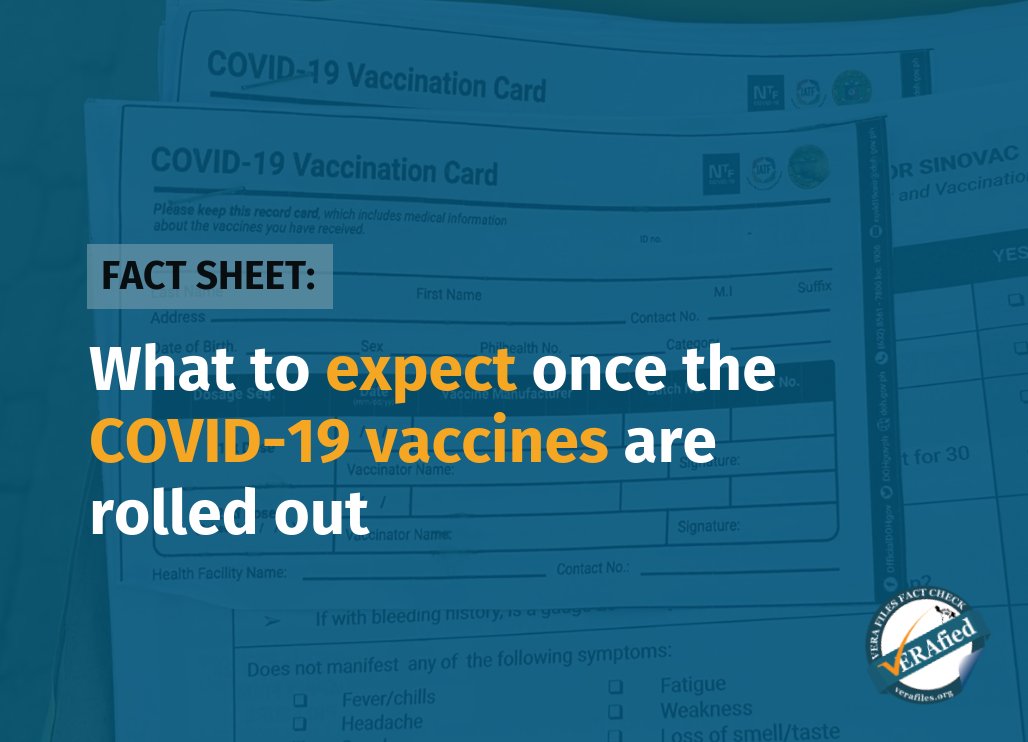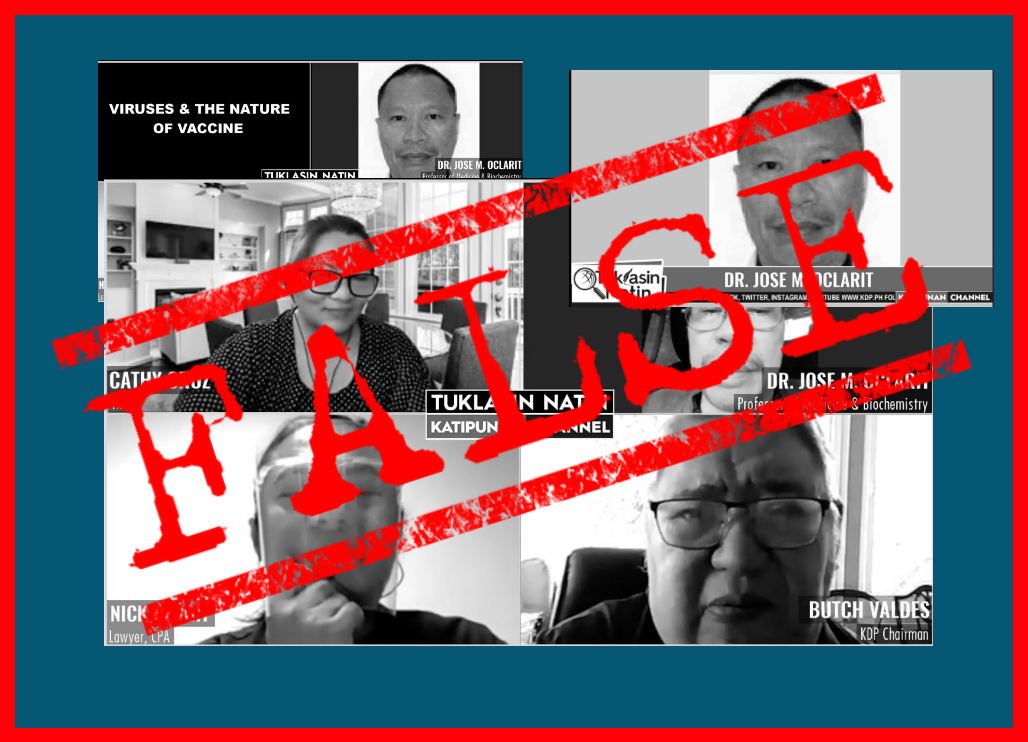After months of expedited clinical trials, several coronavirus disease 2019 (COVID-19) vaccines are now nearing market distribution, and a few are already out for public use.
One of these is Pfizer Inc. and BioNTech SE’s messenger RNA-based vaccine which was used in the mass immunization campaign of the United Kingdomーthe first country to vaccinate its citizens.
On Dec. 8, 90-year-old Margaret Keenan made history as the first to receive the vaccine.
In the Philippines, at least four pharmaceutical companies are currently undergoing evaluation for independent clinical trials, minus AstraZeneca which recently withdrew its application according to news reports saying “they already have enough data.” (SEE VERA FILES FACT SHEET: Getting to know the COVID-19 vaccine prospects in the Philippines)
Meanwhile, at least 17 other vaccine candidates are being considered for procurement as of Nov. 27 according to Jaime Montoya, executive director of the Department of Science and Technology Philippine Council for Health Research and Development.
But to get vaccinated, one has to deal with another COVID-19 related epidemic.
Apart from the obvious health threats the COVID-19 pandemic has brought, the outbreak was also accompanied by a global “infodemic,” which the World Health Organization (WHO) described as an “overabundance of information,” both online and offline, accurate and false.
As the first pandemic in the social media era, the stakes are higher. The same technology which helps enlighten the public is also responsible for the proliferation of misinformation.
The WHO said mis- and disinformation can be “harmful to people’s physical and mental health; increase stigmatization; threaten precious health gains; and lead to poor observance of public health measures.”
In fact, International Federation of Red Cross and Red Crescent Societies President Francesco Rocca identified misinformation as a “parallel pandemic of mistrust” in a Nov. 30 press release.
The WHO also likened the spread of misinformation to the way a virus is transmitted.
“One person might share fake news with their friends and family, and then a handful of them share it with more of their friends and family, and before you know it, potentially harmful or dangerous information is taking over everyone’s newsfeed,” it said in its information sheet on navigating misinformation and disinformation.
By implanting fear through misinformation, vaccine participation may be affected. Immunization campaigns for the promotion of safe and effective vaccines may not reach their targets, continuing the survival of the virus, according to a Sept. 23 joint statement by the WHO and other global partners.
To help flatten the infodemic curve, VERA Files spoke to Nat Gyenes from global nonprofit Meedan, who writes and researches about the intersection of health and technology and is a guest lecturer on health at the Harvard School of Public Health. She said these are the red flags to look out for in COVID-19 vaccine misinformation.
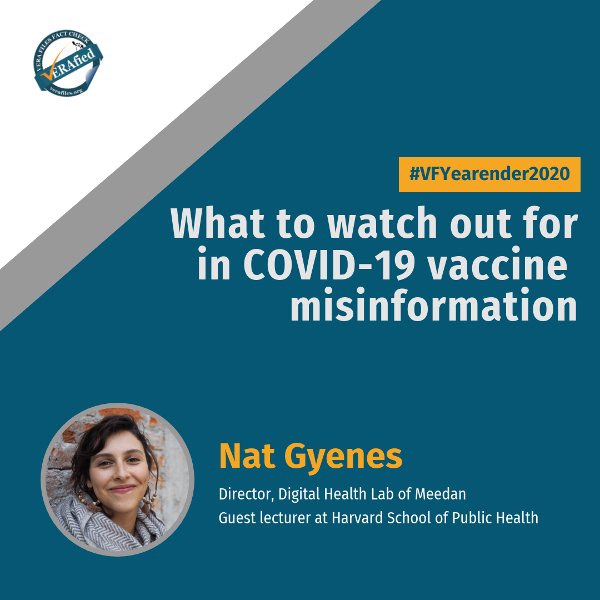
1. Choice of words
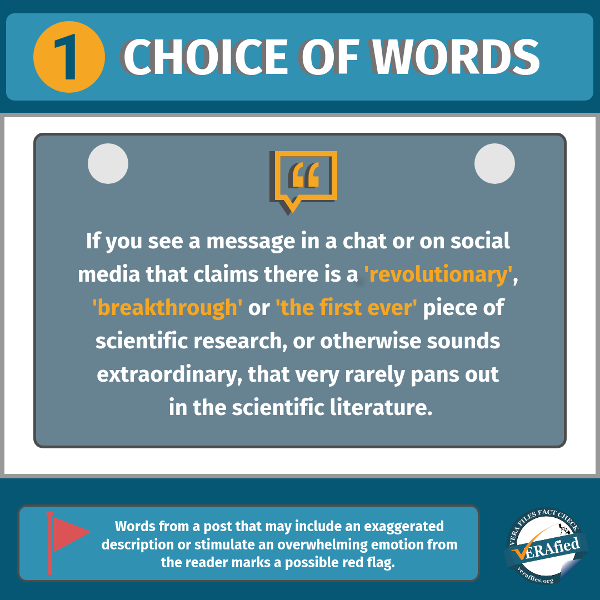
“Furthermore, if it is a true claim, it should also be a massive, breaking news event!” added Gyenes.
2. Conspiratorial thinking
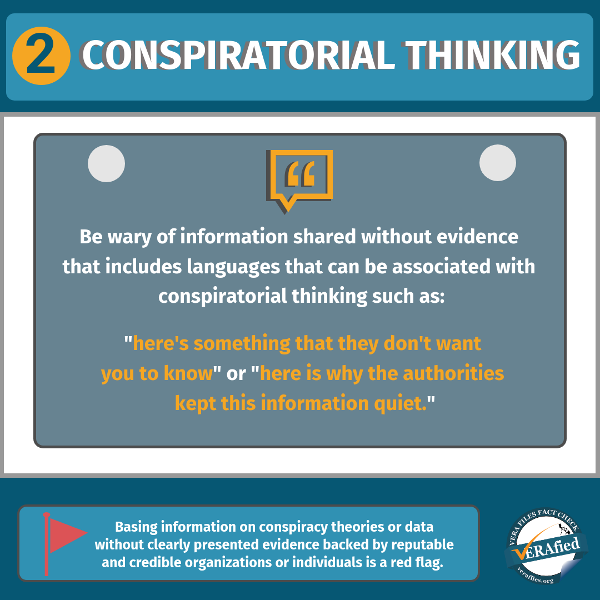
Avoid posts or content which promote conspiracy theories and falsely debunk evidence-based scientific research. Many of those who dive into vaccine conspiratorial thinking are vaccine deniers – these refer to individuals who have a “very negative attitude towards vaccination and not open to a change of mind no matter what the scientific evidence says,” according to the WHO.
They may choose to ignore, reject and twist the scientific consensus or be selective about the information.
3. Individuals or organizations involved
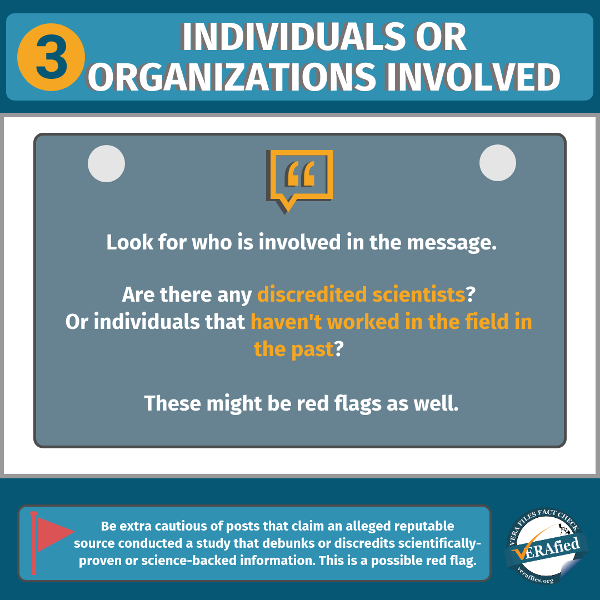
Vaccine-safety knowledge may be influenced by culture and beliefs, but each country has specific credible government- and expert-backed sources of information. Local government units may help locals better understand considering the familiarity of the living environment.
4. Scientific research findings
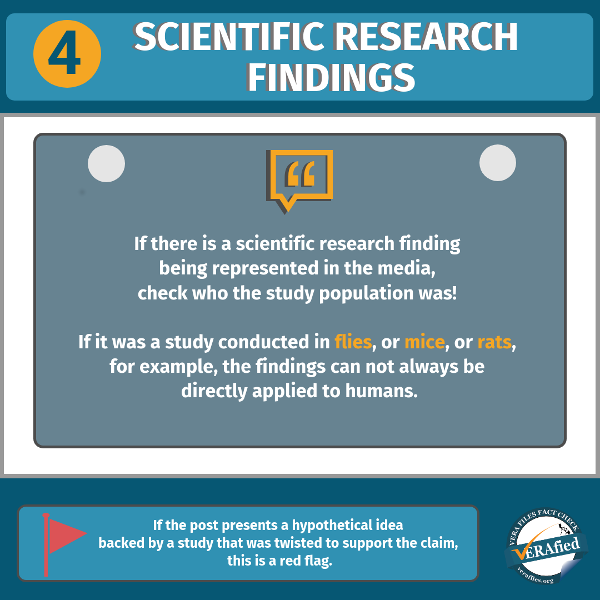
Lack of knowledge about the vaccine’s adverse effects may increase health risks, which could lead to a degradation of trust and confidence in health experts, immunization campaigns and governments.
Close relatives of people who will receive a vaccine also deserve to know the details about the vaccine, such as its name, expected or potential adverse effects, and health-related response in the occurrence of a side effect.
5. Traditional treatments as vaccine substitutes
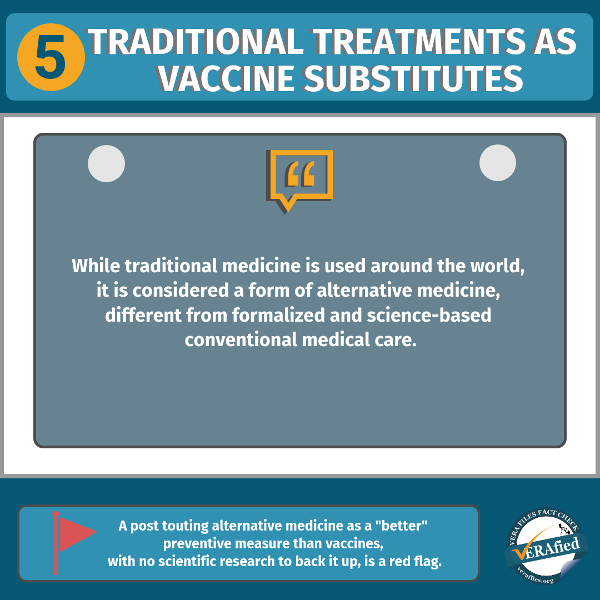
“There are cases of safety and efficacy concerns for traditional medicine,” said Gyenes, citing health experts from Meedan’s Digital Health Lab who claim there is currently “no scientific evidence to support using home or traditional therapies to prevent COVID-19.”
“In cases where individuals may prioritize alternative medicine above science-based conventional medical care, it can cause harm by, for example, contributing to delayed adherence to effective treatments, or putting individuals at unnecessary risk,” she added.
Vaccine roll-out is an important global priority. And in 2021, more COVID-19 vaccines will be ready for public use. But not everyone trusts these health organizations and even governments that promote vaccines.
“It is important for the global public health community to acknowledge that there is legitimate mistrust that communities experience in health institutions,” said Gyenes.
To remedy the situation, Gyenes suggests more “accessible content in a variety of languages, with localized health information available across health and information literacy levels.”
Use of the native tongue in disseminating information helps skeptics rebuild their confidence in public health experts and institutions.
Sources
BBC News, Covid-19 vaccine: First person receives Pfizer jab in UK, Dec. 9, 2020
CNN, First Britons receive Covid-19 vaccine, a landmark moment in the pandemic, Dec. 8, 2020
The Manila Times, Vaccine developer drops PH trials, Dec. 13, 2020
The New York Times, Coronavirus Vaccine Tracker
NPR, U.K. Begins Nationwide Coronavirus Immunization, Largest In Nation’s History, Dec. 8, 2020
Philstar.net, AstraZeneca backs out of planned vaccine trials in the Philippines, Dec. 11, 2020
Rappler, AstraZeneca no longer conducting COVID-19 vaccine trials in Philippines, Dec. 11, 2020
World Health Organization, Managing the COVID-19 infodemic: Promoting healthy behaviours and mitigating the harm from misinformation and disinformation, Sept. 23, 2020
World Health Organization, MODULE 6 Communication
World Health Organization, Responsible media reporting on COVID-19 vaccines, Dec. 7, 2020
World Health Organization Regional Office for Europe, Best practice guidance: How to respond to vocal vaccine deniers in public
World Health Organization Regional Office for Europe, EFFECTIVE COMMUNICATION OF IMMUNIZATION DATA
(Guided by the code of principles of the International Fact-Checking Network at Poynter, VERA Files tracks the false claims, flip-flops, misleading statements of public officials and figures, and debunks them with factual evidence. Find out more about this initiative and our methodology.)
